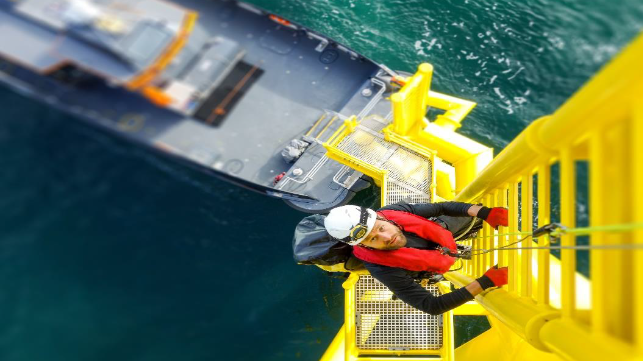UK Announces Landmark Deal on Offshore Energy Transition

The government of the UK has announced a landmark climate transition agreement for Britain's North Sea offshore oil and gas industry. The newly-released "North Sea Transition Deal" is a promise to support the offshore work force and supply chain during the switch to renewable energy and a net-zero emissions economy.
"We will not leave oil and gas workers behind in the United Kingdom’s irreversible shift away from fossil fuels," said Business and Energy Secretary Kwasi Kwarteng in a statement. "At every step on the path to net zero emissions, we will create the right conditions for new green industries to base themselves in the UK and create new high-value employment opportunities, while future-proofing existing businesses to secure the long-term viability of jobs in our industrial heartlands."
The deal includes an agreement for early reductions in production-site GHG emissions (not including emissions from product utilization) totaling 10 percent by 2025, 25 percent by 2027 and 50 percent by 2030, with a goal of reaching net zero by 2050. This would achieve a 15 million tonne reduction in CO2 emissions over the next ten years.
These targets require phasing out high-emission production assets that would be too costly to abate, reducing routine flaring, controlling methane emissions and enabling full or partial platform electrification. Government and industry have pledged to work together to solve the technical challenge of providing electricity to these facilities; the transmission infrastructure could piggyback on the installation of new offshore wind farms, which will overlap geographically and will be connected back to shore with subsea power cables.
Additionally, the deal commits to delivery of investments of up to $22 billion in new energy technologies, including hydrogen production and carbon capture, usage and storage (CCUS). The government has pledged to spend $1.4 billion on CCUS projects by 2025, and it expects to provide additional support for the development of CO2 pipelines, storage sites and wells.
The deal also commits to a voluntary industry target of 50 percent local, UK-made content for all new energy technology projects by 2030, with the same set-aside for oil and gas decommissioning activity. This will be supported by a newly-appointed "industry supply chain champion" who will have the role of coordinating business opportunities for UK contractors and vendors. According to the government, this would support up to 40,000 direct and indirect jobs in the supply chain.

that matters most
Get the latest maritime news delivered to your inbox daily.
For those currently working in UK offshore oil and gas, government and industry will partner on an "integrated people and skills plan" for retraining personnel for future energy jobs. The plan will assess the industry’s future skills, training and standards requirements, and how industry will support and enable the transition of the workforce.
“The UK is showing the world the way to keep the lights on and hit net zero by 2050," said Oil and Gas UK (OGUK) Chief Executive Deirdre Michie OBE. “The North Sea Transition Deal will ensure we build on the last five decades of our offshore energy expertise to deliver to the UK the energy and security it needs, whilst significantly reducing emissions."
